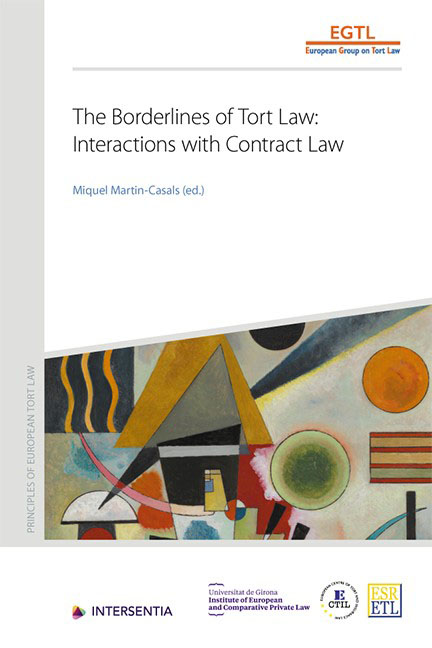Book contents
Greece
Published online by Cambridge University Press: 15 November 2019
Summary
QUESTIONS
TRACING THE BORDERLINES
A. DISTINCTION BETWEEN TORT AND CONTRACT
As the making of a contract creates a duty to perform and the commission of a tort a liability to pay reparation, both torts and contracts are, according to the Greek legal system, sources of liability. However, as explained in Greek doctrine: ‘Tortious liability according to Article 914 CC is primary, since the obligation between the person causing the prejudice and the person prejudiced is created for the first time in the form of this liability (for compensation) when the conditions of the provision are met. Liability for compensation from nonperformance of a contractual obligation is, on the other hand, secondary, since it presupposes precisely a pre-existent (primary) obligation between the parties, the obligation to perform the contract, that is, to fulfil the promised (original) performance.’ This secondary liability for compensation is regulated mainly in arts 330, 335 f, 362 f, and 382 f of the Greek Civil Code (GCC).
It has been stated that:
‘[T]he distinction between contractual and tortious liability is not as fundamental as used to be believed, nor does it stem from any logical necessity. Oft en, also, the inclusion of a consequence in law in contractual or tortious liability, such as of the liability of the producer for defective products in accordance with Community Directive 83/374 and the relevant provisions of adaptation of Greek law (art 6 L 2251/1994), should be a matter of indifference to the extent that a recourse to the general law for the filling of any gaps in the special regulation of this liability is not required. This distinction is based chiefy on the fact that, in the case of liability within a contract, we must accept a closer bond between debtor and creditor by reason of the binding nature of the contractual obligation which pre-existed and which had been created by the parties’ own will – a binding element absent in tortious liability.
- Type
- Chapter
- Information
- The Borderlines of Tort LawInteractions with Contract Law, pp. 213 - 252Publisher: IntersentiaPrint publication year: 2019

